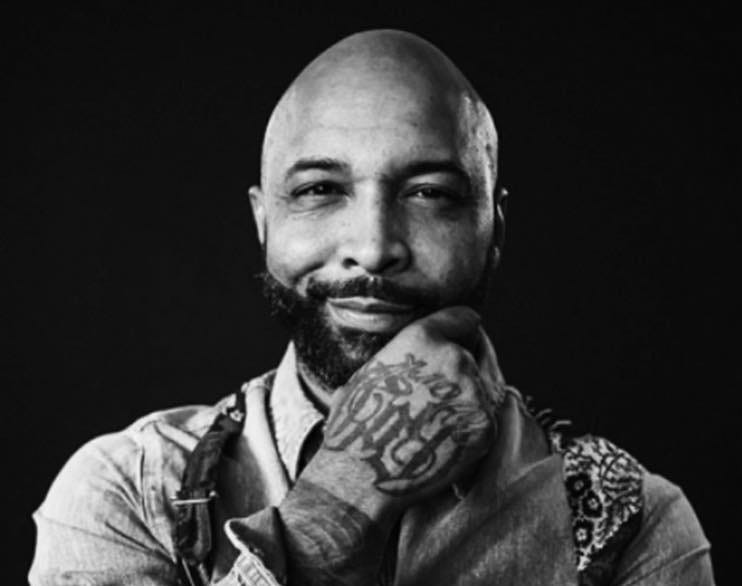The $20M Lesson: Why Joe Budden Walked Away From Easy Money
[Sponsored Ad]
I’ve been using Ketone-IQ to sharpen my mental focus, sustain clean energy, and keep my brain firing on all cylinders throughout the day and after speaking with the team, they’ve agreed to give you an exclusive 30% off your order: Grab yours here.
Hey there,
Picture this: You're offered $80 million. Not $80K. Not $8 million. Eighty. Million. Dollars.
Most people would sign faster than you can say "where's the pen?"
Joe Budden said no.
And that decision turned him into a $20M-a-year media mogul who answers to absolutely no one.
The Kid Who Couldn't Be Controlled
Joe's story starts like a cautionary tale. Born in Harlem, raised in Jersey City. A hothead who got shipped off to boarding school, where he discovered two things that would define his life: hip-hop and angel dust.
He came home a gifted rapper and a PCP addict.
At 17, rehab. No diploma. Just raw talent and the kind of street credibility you can't manufacture.
But here's what's wild: even then, Joe was building directly with his audience. Battling everyone in Jersey. Dropping verses on mixtapes. Word-of-mouth so strong that it traveled through the grapevine straight to Lyor Cohen at Def Jam.
The Traditional Path (And Why It Almost Broke Him)
Def Jam signed him. "Pump It Up" hit the Top 40, landed in 2 Fast 2 Furious, earned a Grammy nomination. First week? 95,000 units sold.
Joe was living the dream, right?
Wrong.
When he tried to expand into radio at Hot 97, label exec Kevin Liles shut it down: "Rappers can't be accessible." Translation: stay in your lane, we own your future.
Five years. No album. Joe dissed everyone Def Jam, even Jay-Z but had zero equity to show for it.
Here's the brutal truth: Talent without ownership is just expensive labour.
The Underground Years (Where Real Value Gets Built)
So Joe went rogue. MySpace. Forums. YouTube. Direct to fans while the industry wrote him off.
"Mood Muzik." Mixtapes. Street flooding while chart positions flatlined.
This is where most artists give up. Joe? He realised something revolutionary: Freedom isn't given but it's negotiated.
The Pivot That Changed Everything
By album #8, traditional sales had stalled. Joe was broke, arrested, struggling with addiction on reality TV. He "retired" without ownership or money.
But that radio itch? It never left.
"Everyday Struggle" on YouTube became the hottest show in music. Hot takes, viral moments, cultural conversations that everyone was talking about.
Complex wouldn't give him equity.
So Joe did what Joe does: roasted them publicly and walked away from a #1 show.
The industry called him crazy. Joe called it Tuesday.
The Patreon Gamble That Paid Off
Fast forward: "The Joe Budden Podcast" becomes the #1 music podcast. Spotify offers a 2-year deal. Joe beats projections by 900%.
Renewal time? Spotify offers $40M. Then another $40M to leave YouTube entirely.
Joe's response? "Nah, I'm good."
While the industry laughed assuming he'd lost millions, Joe moved to Patreon for full creative and financial control.
The result? A $20M annual empire. Every. Single. Cent. His.
The Blueprint That Actually Works
Joe's success isn't about getting lucky or having the hottest take. It's about three non-negotiables:
1. Build Direct Relationships No intermediaries between you and your audience. When platforms change algorithms or terms, you're not screwed.
2. Serve Culture Relentlessly Joe didn't just talk about music, he became the voice of hip-hop culture. When you serve culture, culture serves you back.
3. Own Everything Not just your content. Your distribution. Your monetization. Your future.
Why This Matters to You
You might not be dropping mixtapes or podcasting about hip-hop, but Joe's principle applies everywhere:
Cultural capital outlasts any paycheck.
Whether you're a creator, entrepreneur, or building anything meaningful—the temptation to take the big check from the platform, the corporation, the "sure thing" is always there.
Joe's story proves that sometimes the scariest path—the one where you bet on yourself is actually the safest long-term play.
Because when you own the culture AND the work, you don't just secure the bag.
You secure your future.
What are you building that's truly yours?
David
P.S. Joe's journey from broke and addicted to $20M and independent took decades. The overnight success story is a myth but the ownership strategy is very real. What's one thing you could own more of in your work this week?



